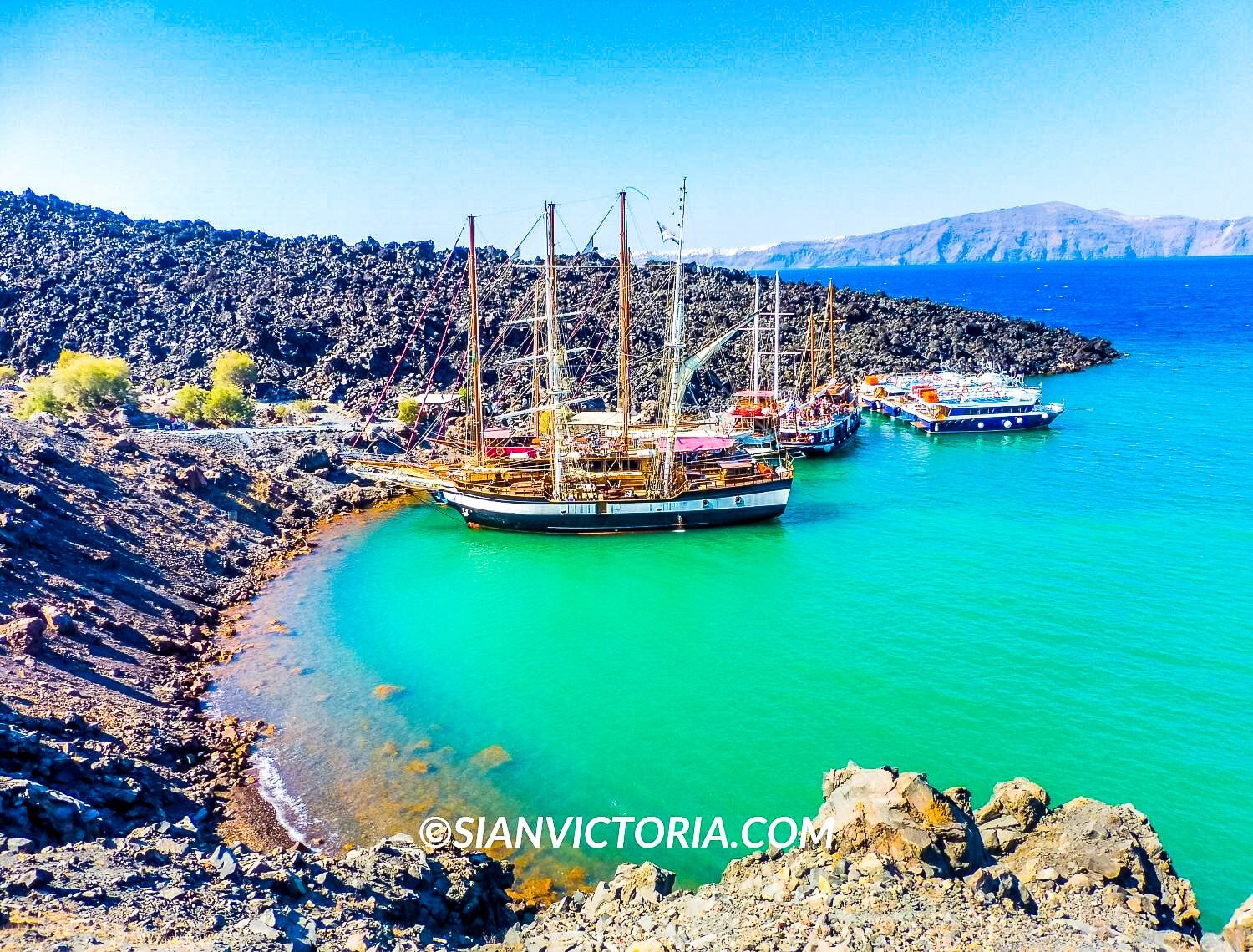When planning a vacation or a day out exploring a new destination, the terms “tour” and “excursion” are often used interchangeably. However, understanding the subtle yet significant differences between the two can enhance your travel experience. A tour typically involves a guided itinerary that covers multiple attractions or locations, providing in-depth knowledge and insights.
On the other hand, an excursion is usually a shorter journey to a specific destination or activity, offering a more focused exploration. By unraveling the key disparities between a tour and an excursion, you can decide which option aligns better with your travel preferences and objectives. Let’s delve deeper into the nuances of these terms to make informed choices for your next adventure.

Understanding the Concept of a Tour
When it comes to exploring new destinations, understanding the concept of a tour is essential. A tour typically involves a planned itinerary that includes multiple activities and sightseeing opportunities.
Types of Tours
There are various types of tours such as guided tours, self-guided tours, and group tours. Each offers a unique way to experience a destination.
Benefits of Taking a Tour
By joining a tour, travelers can benefit from expert guides who provide insights about the destination, the convenience of having logistics planned, and opportunities to meet like-minded individuals.
- Rich Experience: Tours offer a curated experience that allows travelers to make the most of their time.
- Learning Opportunities: Guides often share interesting facts and historical information about the places visited.
- Community: Tours provide a chance to socialize with fellow travelers, fostering a sense of community.

Exploring the Meaning of an Excursion
An excursion is a brief journey or trip taken for pleasure, often to a location of interest. Unlike a tour, which typically follows a planned itinerary with a guide, an excursion is more flexible and allows for spontaneous exploration.
Key Characteristics of an Excursion
Excursions are usually shorter in duration compared to tours, ranging from a few hours to a day. They offer a more intimate and personalized experience, allowing participants to delve deeper into a specific area of interest.
Excursions often focus on a particular activity or attraction, such as hiking, wildlife watching, or cultural immersion, providing a hands-on and immersive experience for participants seeking meaningful connections with the destination.
Benefits of Choosing an Excursion
By opting for an excursion over a tour, travelers have the flexibility to tailor their experience based on personal preferences, interests, and time constraints. This freedom allows for a more personalized and authentic encounter with the destination.
- Customizable itineraries
- Opportunity for spontaneous exploration
- Enhanced interaction with local culture and environment
Key Characteristics of Tours
When considering tours in comparison to excursions, tours typically offer a more comprehensive and structured itinerary for travelers. Tours are organized trips led by guides, providing an in-depth exploration of a particular destination or attraction.
Guided Experience
Tours often include knowledgeable guides who offer historical and cultural insights, enhancing the overall travel experience. This personalized touch distinguishes tours from self-guided excursions.
Diverse Destinations
Tours can range from city tours to nature expeditions, catering to various interests and preferences. Exploring multiple locations within a single trip is a common feature of tour packages.
- City Tours
- Adventure Tours
- Cultural Tours
Key Characteristics of Excursions
When it comes to excursions, several key characteristics set them apart from regular tours. Excursions are typically shorter in duration compared to tours and often focus on a specific activity or destination.
Specialized Activities
Excursions often offer specialized activities such as snorkeling, hiking, or wine tasting, providing a more immersive experience for participants. These activities are designed to cater to specific interests and preferences.
Local Expertise
Excursions usually involve local guides or experts who provide insights into the destination’s culture, history, and unique features. This personalized touch enhances the overall experience and allows participants to gain in-depth knowledge.
Flexibility and Freedom
Excursions offer a level of flexibility and freedom that may not be as readily available on standard tours. Participants can often customize parts of the excursion to suit their preferences, creating a more tailored and enjoyable adventure.

Comparing the Costs of Tours and Excursions
When considering the costs associated with tours and excursions, several factors come into play that can influence the overall price. Excursions typically focus on one specific activity or destination, which can lead to a more affordable price tag compared to tours, which may encompass multiple destinations and activities.
Cost Factors for Tours:
For tours, the costs can vary depending on the number of attractions included, the duration of the trip, and the type of accommodations provided. Tour packages often offer all-inclusive pricing, covering transportation, meals, and entry fees.
Cost Factors for Excursions:
Excursions, on the other hand, tend to have a more straightforward pricing structure, focusing on a single activity or sightseeing experience. These day trips usually involve minimal additional costs, making them a budget-friendly choice for travelers looking to explore a specific area.
Booking Options for Tours and Excursions
When it comes to booking tours and excursions, there are a variety of options available to suit different preferences and budgets.
Online Booking Platforms
One popular method is to use online booking platforms such as Expedia or Viator. These platforms provide a wide range of tour options and often offer discounted prices. You can easily browse through different tours and excursions, read reviews, and book directly on the platform.
Through Tour Operators
Another option is to book directly through tour operators. This can sometimes result in more personalized experiences and the ability to customize your itinerary.
- Visit the official websites or contact tour operators via phone or email for booking.
- Some tour operators also have physical offices where you can make reservations in person.
Benefits of Choosing a Tour
When deciding between a tour and an excursion, there are numerous benefits to choosing a tour:
Expert Guidance
Tours often come with knowledgeable guides who provide insights into the destinations, enhancing the overall experience. Guides can offer contextual information that adds depth to the trip.
Convenience and Comfort
With a tour, logistics such as transportation and accommodations are taken care of, allowing travelers to relax and enjoy the journey.
Organized tours provide a stress-free way to explore new places.
Itinerary Variety
Tours offer diverse itineraries catering to different interests, ensuring that travelers can choose options that suit their preferences.
- City tours
- Adventure tours
- Cultural tours
Benefits of Choosing an Excursion
When comparing tours to excursions, excursions offer unique advantages that enhance your travel experience.
Immersive Local Experience
Excursions allow you to delve deep into the local culture, providing authentic encounters with the destination. Experience the essence of the place firsthand.
Flexibility and Personalization
Excursions often offer flexibility in itineraries, allowing you to customize your activities based on your preferences, creating a tailor-made experience.
- Personalized interaction with locals
- Opportunity to explore off-the-beaten-path locations
Factors to Consider When Choosing Between a Tour and an Excursion
When deciding between a tour and an excursion, several factors should be taken into account to ensure you make the best choice.
Duration
Consider the length of time you want to spend exploring. Tours are typically longer and more structured, while excursions are usually shorter and more flexible.
Group Size
Think about whether you prefer a larger group setting or a more intimate experience. Tours often have bigger groups, while excursions tend to be smaller, offering a more personalized experience.
Itinerary
Review the planned activities and destinations included in both options. Tours may cover a broader area with multiple stops, while excursions may focus on a specific attraction or activity.
Flexibility
Consider how much flexibility you desire during your exploration. Tours have set schedules and itineraries, while excursions offer more freedom to customize your experience.
Cost
Compare the prices of tours and excursions to determine which option fits your budget. Tours may include more amenities at a higher cost, whereas excursions can be a more budget-friendly choice.
Frequently Asked Questions
What is the difference between a tour and an excursion?
- A tour typically involves a planned itinerary that includes visiting multiple locations or attractions, while an excursion is usually a shorter trip to a single destination or activity.
Are tours and excursions the same thing?
- While both involve traveling to different places, tours tend to be more comprehensive and include a variety of experiences, whereas excursions are usually focused on a specific activity or destination.
How long do tours and excursions typically last?
- Tours can vary in duration from a few hours to several days or weeks, depending on the itinerary. Excursions are usually shorter in duration, often lasting just a few hours or half a day.
Do tours and excursions cost the same?
- Costs for tours and excursions can vary based on the duration, inclusions, and destinations involved. Generally, tours that cover multiple attractions or locations may be more expensive compared to excursions with a single focus.
Can excursions be part of a tour?
- Yes, excursions can be included as part of a larger tour itinerary. For example, a tour of a city may include excursions to specific landmarks or attractions within that city.
Final Thoughts
As we come to the end of our exploration into the dissimilarities between tours and excursions, it is evident that while both offer enriching experiences, they cater to different preferences and travel styles.
A tour encompasses a structured itinerary provided by a tour operator, offering a comprehensive exploration of various attractions. On the other hand, an excursion is a shorter, more casual outing with a specific focus on a single activity or location.
Understanding these key disparities can help travelers make informed decisions based on their interests, time constraints, and desired level of engagement. Whether you opt for the detailed narration of a tour or the spontaneity of an excursion, both options promise memorable encounters and a deeper connection to the places you visit.

